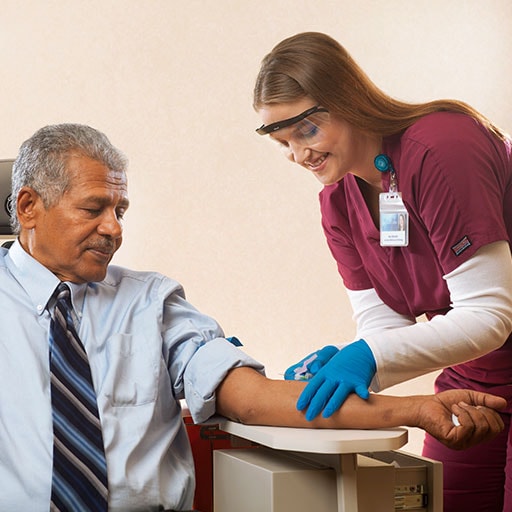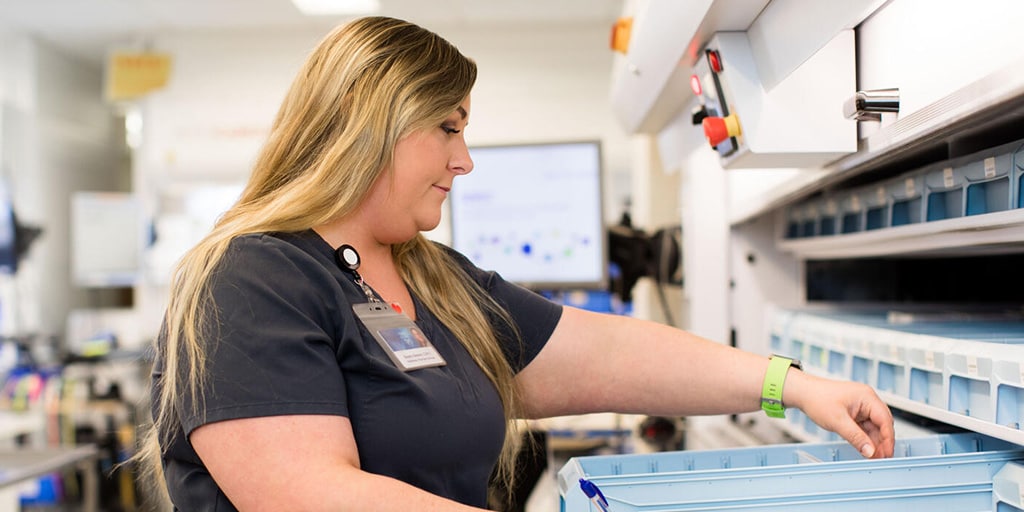
What does a pharmacy technician do?
A pharmacy technician works closely with a pharmacist to ensure the health and safety of their patients. They locate, dispense, pack, and label a prescribed medication for a patient that is then reviewed for accuracy by a pharmacist before dispensed to the patient. They might also help pharmacists with administrative tasks such as processing insurance claims, tracking inventory, and filing paperwork.
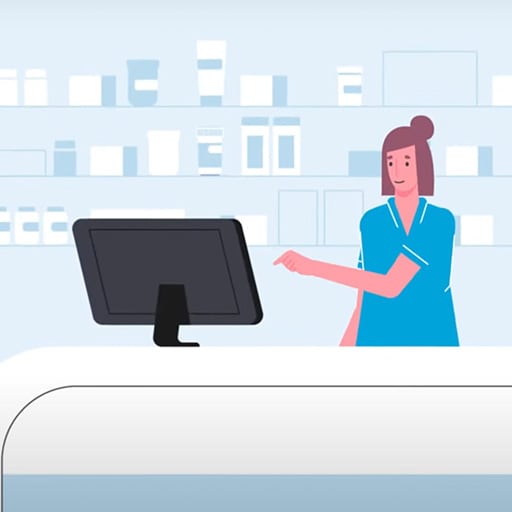
1:18
Video: Behind the Scenes: Pharmacy Technician
Scope of practice
Pharmacy technicians work with doctors, nurses, and pharmacists. They perform a wide range of tasks within the pharmacy.
Common tasks and duties include:
- Preparing new prescription and refill requests for patients
- Dispensing medication to patients per the prescription, or provider’s orders
- Packing and labeling a prescribed medication
- Processing insurance claims
- Tracking inventory
- Preparing compounded medications using sterile and non-sterile processes
- Filling automated dispensing machines
- Repackaging of bulk medications
Specializations
Like pharmacists, pharmacy technicians can practice in a specialty industry like academia, community, or government, or in a specialty area like critical care, oncology, or pediatrics.
Work environment
Pharmacy technicians typically work in retail stores, hospitals, nursing homes, and assisted living facilities. They spend the majority of their work day on their feet, filling and packaging prescriptions, and working with pharmacists and other health care providers. Depending on where they work, they may need to work nights, weekends, and holidays.
Becoming a pharmacy technician
Pharmacy technicians act as a link between patients and pharmacists, and play an important role in the health care team. If you enjoy helping people and love interacting with patients, but aren’t interested in clinical work, becoming a pharmacy technician may be a great option for you. It's one of the few healthcare professions that works with patients, but does not work with procedures or direct patient care. High school students interested in this career path should take science courses like chemistry, biology, and medical terminology.
Higher education requirements
All pharmacy technicians need at least a high school degree or equivalent with on-the-job training, but many choose to complete a postsecondary education program such as a certificate program or an associate’s degree. There are many advantages to completing specialized training and then obtaining your certification.
A certificate program may be available in an online format and can be completed in as little as nine months. Completion of this type of program will help prepare students for the Pharmacy Technician Certification Exam (PTCE). There also are certificate programs that include a hands-on learning component where students spend time training in a pharmacy.
An associate’s degree program often takes around two years to complete and often includes internship or externship experiences. Often students take the PTCE following their externship experience.
Certification process
Certification is a process by which nongovernmental agencies or associations grant recognition of competence to individuals who have met certain predetermined qualifications. Certification provides professional credentialing for pharmacy technicians and is required of some pharmacy technicians depending on where they are employed.
Requirements for pharmacy technicians depend on the particular state they practice. Some states do not require certification and are simply regulated through exams, continuing education, and background checks. Other states do require that pharmacy technicians are certified by passing the PTCE.
Once a pharmacy technician has passed the PTCE exam, they can practice as a certified pharmacy technician (CPHT).
Career opportunities and outlook
Pharmacy technicians can expect an annual median salary of $36,740 according to the Bureau of Labor Statistics.
Pharmacy technicians have countless career opportunities available. With additional training, education, and experience, some pharmacy technicians advance into managers of retail pharmacies, pharmaceutical representatives, or even pharmacists.
By the numbers
median annual salary
years of higher education
job growth projected from 2020-2030
Pharmacy technician programs at Mayo Clinic
Mayo Clinic offers a 20-week Pharmacy Technician Program in Rochester, Minnesota; Jacksonville, Florida; Phoenix, Arizona; and throughout Wisconsin to prepare students for a career as a pharmacy technician.
Browse similar careers
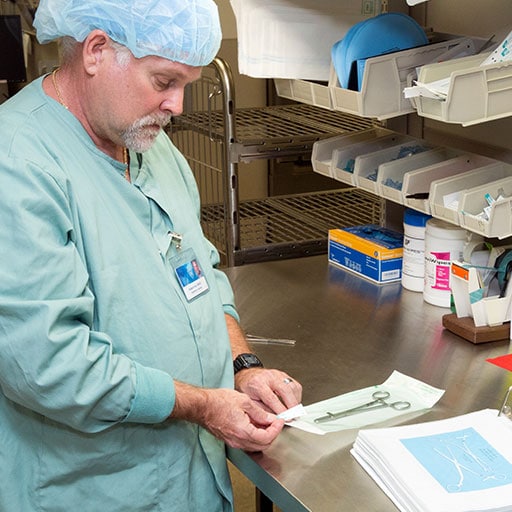
Central service technician
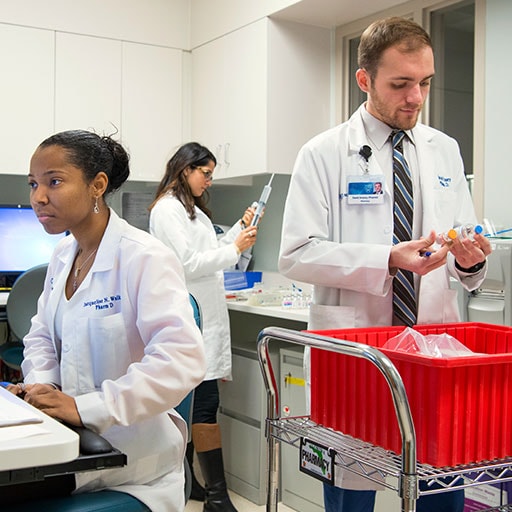
Pharmacist
